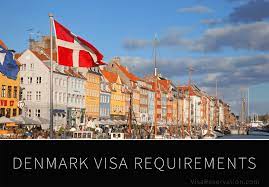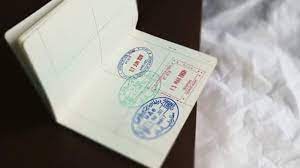Discover the Beauty of Turkey: A Must-Visit Destination for Bahrain Citizens
Are you a Bahrain citizen seeking the perfect getaway that combines rich history, stunning landscapes, and vibrant culture? Look no further than Turkey – an enchanting destination waiting to be explored. From the majestic palaces of Istanbul to the fairy chimneys of Cappadocia, Turkey offers an unforgettable experience for every traveler. Join us as we embark on a journey to discover the beauty of Turkey and why it should be at the top of your travel bucket list! Turkey Visa for Bahrain Citizens
What is Turkey?
Turkey is a country located in Southeast Europe. With coasts on the Aegean Sea and the Mediterranean Sea, it is bordered by Bulgaria, Greece and Romania to the north, Syria and Iraq to the east, Armenia and Iran to the south, and Cyprus and Jordan to the west. With a population of over 76 million people, Turkey is one of the most populous countries in Europe. Its capital city is Ankara.
The area that is now Turkey has been populated since at least 7000 BC. During the ancient period, this region was part of the Persian Empire and later became part of the Byzantine Empire. In 1453, Ottoman Turks conquered Constantinople (now Istanbul) from the Byzantine Empire and made it their capital. The Ottoman Empire reached its maximum extent with control over territories from Hungary in the north to Egypt in the south. However, following World War I and World War II, several countries emerged from Ottoman rule including Greece (1923), Syria (1920), Iraq (1932), Lebanon (1945), Malta (1970) and Cyprus (1974).
After World War II, Turkey underwent a period of rapid modernization. In 1970, it became a republic with a president appointed by Parliament. In 1983, President Turgut Ozal abolished parliamentarianism and ruled as an autocrat for 11 years until he was replaced by Prime Minister Mesut Yilmaz in late 1999. Since then, parliamentary democracy has been restored with current Prime Minister Recep Tayyip Erdogan serving his fourth term
History of Turkey
Turkey, a country located on the Anatolian Plateau, has a long and rich history. The first humans to live in Turkey settled there around 10,000 BC. The area that is now Turkey was once part of the Hittite Empire, which was one of the largest empires in ancient times. After the fall of the Hittite Empire, many different groups settled in Turkey, including the Greeks, Armenians, Assyrians, Persians, Arabs and Mongols. Turkey Visa for Mexican Citizens
The Turkish Ottoman Empire became one of the most powerful empires in world history. During its reign from 1299 to 1922, the empire controlled much of what is now Europe and parts of North Africa and Central Asia. The empire was eventually dissolved following World War I and World War II.
Today, Turkey is a democratic country with a population of over 80 million people. It is home to some of the world’s most spectacular landscapes and historical sites, including Istanbul (formerly Constantinople), Cappadocia and Ephesus.
Geography of Turkey
The geography of Turkey is diverse and includes vast mountainous regions as well as coastal plains. The country is bordered by the Mediterranean Sea to the south, Armenia and Iran to the east, Greece and Bulgaria to the northeast, and Syria and Iraq to the north. The highest peak in Turkey is Mount Ararat, which stands at 5,137 meters above sea level. Other notable geographical features include the Black Sea coast, Anatolia’s plateau region, and the Central Anatolian Plateau.
Turkey has a population of over 80 million people and an area of over 737,000 square kilometers. The capital city is Ankara. Major languages spoken in Turkey include Turkish, Armenian, Arabic, Assyrian/Chaldean/Syriac, Georgian, Greek (also spoken by some Turkish minorities), Hebrew, Kurdish (Kurmanji), Romanian (spoken by a minority), Russian (spoken by a minority), Serbian (spoken by a minority), Slovene (spoken by a minority) and Ukrainian.
Population of Turkey
Turkey is a country located in Eurasia and straddling Europe and Asia. It is bordered by Bulgaria to the north, Greece and Syria to the west, Armenia and Iran to the south, and Iraq and Kuwait to the east. With a total land area of 1,686,002 square kilometers (660,562 square miles), Turkey ranks as the seventeenth-largest country in the world. The population of Turkey is estimated at more than 80 million people.
Turkish culture is rich and varied, with a history dating back thousands of years. The country has been home to a number of influential civilizations including the ancient Greeks, Persians, Romans, Byzantines, Seljuks, Ottomans and Modern Turks. Many notable landmarks can be found in Turkey including Istanbul’s Hagia Sophia Cathedral, İznik Kilise Mosque in Antalya Province which is UNESCO World Heritage Site since 1993 for its architecture Byzantine features mosaics from 6th century AD., Cappadocia’s Göreme National Park with its fairy chimneys towering high over rolling hills covered with wildflowers flourishing in springtime as well as Ephesus which was one of the Seven Wonders of the Ancient World.
Despite its large population size and diverse geography there are relatively few places off limits to visitors in Turkey due to its restrictive travel policies. All major tourist destinations are well-maintained with excellent facilities including hotels, restaurants and tourist attractions. Turkish visas are not required for
Language of Turkey
Turkish is the official language of Turkey, although there are also numerous regional languages spoken throughout the country. Turkish is a Turkic language and shares many linguistic similarities with other Turkic languages, including Azerbaijani, Kazakh, Kyrgyz, Tatar and Uzbek.
Turkish is a relatively new language – it was first documented in written form in the 12th century – and because of this its grammar is still being explored by scholars. Nevertheless, Turkish has evolved into an expressive and largely user-friendly language that is perfect for communications across cultural boundaries.
Turkish also has an extensive literary tradition that dates back to ancient times. Famous authors such as Homer, Aristotle and Shakespeare have been written in Turkish, as have contemporary authors such as Orhan Pamuk and Elif Shafak. Modern Turkish literature features a wide range of genres and styles, from comic books to genre fiction to poetry.
Turkish culture is rich and diverse, featuring art forms such as classical music and dance as well as popular entertainments like cinema. Turks are passionate about football (soccer), which they consider their national sport. Istanbul’s iconic Galata Bridge – built over the Golden Horn in 1365 – is one of the world’s most famous sights not only because of its beautiful architecture but also because it serves as the venue for important matches between top European clubs during Champions League football tournaments.
Religion in Turkey
Turkey is a country with a rich religious history. It is home to many of the world’s oldest religions, such as Christianity, Islam, and Judaism. Turkey also has a large number of traditional religions, such as Shamanism and Zoroastrianism.
Islam is the predominant religion in Turkey. The Turkish government tries to keep Islam separate from other religions, but there is considerable diversity among Muslims in Turkey. There are significant populations of Muslims who are not observant of Islamic law, and there are also sizable Muslim communities who practice other religions alongside Islam.
The majority of Turks are Sunni Muslims. Shia Muslims make up about 10 percent of the population, while Christians make up about 2 percent of the population. There are also a number of small minorities who identify with other religious beliefs.
Turkey has several important religious sites. One of the most famous is Suleymaniye Mosque in Istanbul. This mosque was built by Suleyman the Magnificent in 1555 AD. The mosque is considered one of the finest examples of Ottoman architecture and it remains an important tourist attraction today.
One other important site is Cappadocia Monastery, which is located in central Turkey near Nevşehir. This monastery was founded by St.. Gregory the Illuminator in 540 AD and it remains one of the most important Christian pilgrimage sites in Turkey today.
Travel Tips for Turkish Tourists in Bahrain
If you are planning a trip to Bahrain, be sure to consult this list of travel tips specific to Turks in Bahrain.
Be aware that the temperatures in Bahrain can be quite extreme, so pack plenty of sunscreen and hats!
Bahrain is an excellent place to explore on foot. There are plenty of villages and Bishops’ Cities located close by with narrow streets and old mosques.
For those who enjoy shopping, Bahrain has some great malls and souks. The pearl market is a must-see if you’re visiting Bahrain during Ramadan.
Whenever possible, try to get out into the countryside. You will find stunning beach resorts as well as lovely mountain villages waiting for you to explore them!






